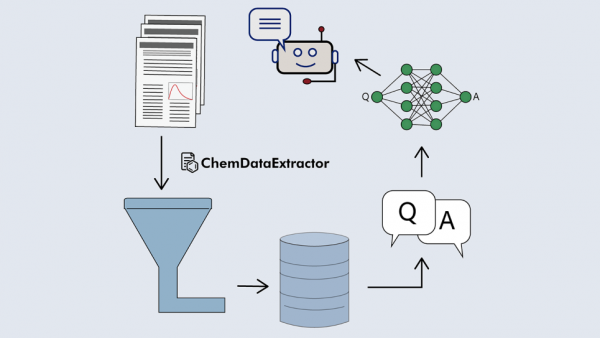AI-Powered Lab Assistants: Supercomputing and Language Models Are Revolutionizing Materials Science

In the ever-evolving field of materials science, one of the most transformative forces reshaping the landscape is the convergence of artificial intelligence and high-performance computing. Researchers at the University of Cambridge, led by Jacqueline Cole, are spearheading this change with support from the Argonne Leadership Computing Facility (ALCF) of the U.S. Department of Energy.
Their groundbreaking project, recently highlighted in HPCwire, focuses on building AI-powered lab assistants that digest and understand complex scientific literature. By mining millions of academic articles using tools like ChemDataExtractor, Cole’s team creates structured, domain-specific databases to train small but highly efficient AI models. These models then act as intelligent assistants for materials scientists—providing instant answers, insights, and guidance during experiments.
From Information Overload to Intelligent Automation
The amount of published research is growing exponentially. Traditional methods of literature review can't keep pace, especially when immediate, experiment-critical decisions are at stake. Cole’s team tackles this issue by transforming research papers into Q&A datasets that can be used to fine-tune smaller language models—achieving results on par with or better than large general-purpose AI models.
This approach, known as knowledge distillation, avoids the costly pretraining phase by offloading domain knowledge directly into curated Q&A pairs. These data-rich models are not only faster and cheaper to train but also far more specialized. For example, their MechBERT model, designed for analyzing stress-strain properties in aerospace and automotive materials, outperforms standard tools in predicting mechanical behavior.
The Role of Supercomputing at ALCF
The success of these AI tools is underpinned by access to world-class supercomputing facilities at the ALCF. Since 2016, the Argonne team has supported Cole's group through programs like the ALCF Data Science Program and DOE’s ASCR Leadership Computing Challenge, providing the computational muscle needed to process massive datasets and develop scalable models.
Now, by fine-tuning models using just a few GPUs—or even personal computers—this research is lowering the barrier to entry for labs worldwide. Whether you're working on optoelectronics, photovoltaics, or structural materials, you can now benefit from AI tools specifically designed for your field.
AI at Your Fingertips: The Democratization of Materials Intelligence
Imagine a scenario where a materials lab, operating at night during a beamline experiment, hits an unexpected snag. Instead of combing through journal articles manually, researchers could simply query a domain-specific language model for immediate guidance. This is not science fiction—it’s the future Cole’s team is building.
Their vision is one of AI democratization: plug-and-play AI assistants for researchers in every subfield of materials science. This plug-and-play framework makes advanced machine learning accessible, fast, and cost-effective. Crucially, it places cutting-edge AI tools into the hands of scientists, not just data scientists.
Wider Implications for R&D and Innovation
By making materials intelligence more agile and accessible, this research opens the door to accelerated innovation in sectors like renewable energy, electronics, aerospace, and semiconductors. Researchers can now rapidly identify optimal materials, simulate properties, and iterate faster, thereby shortening the path from lab bench to market application.
As the volume and complexity of materials data grow, such AI-enhanced approaches are not just advantageous—they’re essential for staying competitive in the global innovation race.
Original article: https://www.hpcwire.com/off-the-wire/alcf-turning-materials-data-into-ai-powered-lab-assistants/
This blog post was prepared with the assistance of AI technologies for content generation and formatting.
Sponsored by PWmat (Lonxun Quantum) – a leading developer of GPU-accelerated materials simulation software for cutting-edge quantum, energy, and semiconductor research. Learn more about our solutions at: https://www.pwmat.com/en
📘 Download our latest company brochure to explore our software features, capabilities, and success stories: PWmat PDF Brochure
🎁 Interested in trying our software? Fill out our quick online form to request a free trial and receive additional information tailored to your R&D needs: Request a Free Trial and Info
📞 Phone: +86 400-618-6006
📧 Email: support@pwmat.com

Comments
Post a Comment